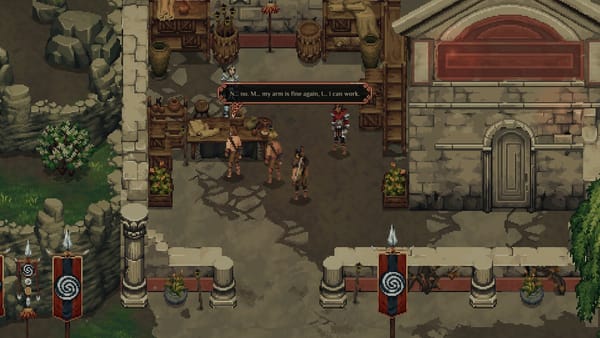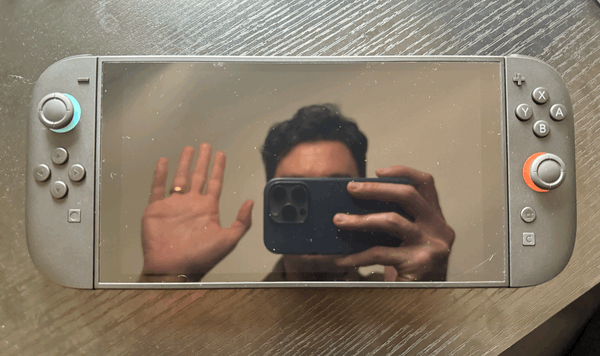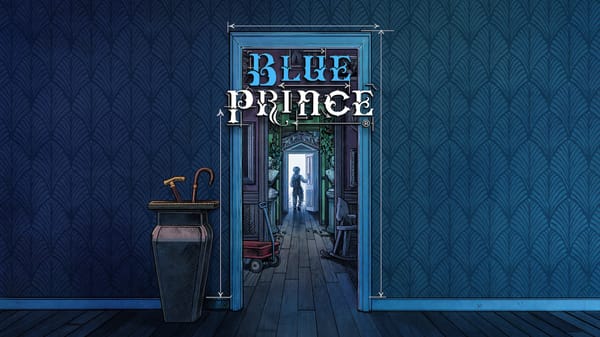Deathloop and the relative pleasure of questions
Can mysteries satisfy without satisfactory answers?
I dreamed about Deathloop the first night after playing it. This tends only to happen for me with puzzle games (big Tetris Effect sufferer over here), but there I was, night one, watching my subconscious work through the steps it would take to break free. Deathloop is a time-loop game, an increasingly popular genre as we enter into 2020-2: Chrysalis Doomectris, or whatever we want to call this interminable period we can’t seem to escape. So too in Deathloop: you play as Colt Vahn, who is trying to end the endless repetition of a single day. For, uh, reasons.1 Regardless, the game’s central fantasy is best summed up by the title screen, where you are invited, nay, implored to “Break the Loop.”
Which of course you do with guns and telekinesis and a lot of blam-blam-pow.
I often find I like the feeling of playing videogames more than the story of videogames. The Legend of Zelda, one of my favorite franchises, doesn’t even break the narrative mold enough to challenge the damsel in distress trope, even with its newest offering. And yet the feelings of discovery, of problems with solutions, of mastery are so enjoyable that the narrative almost doesn’t matter. This proves even more true for me with violent games. Bioshock2 is an interesting meditation on choice and objectivism, until, that is, you are eventually funneled toward a jacked-up version of Not Ayn Rand that you shoot pow-pow until he dies, thus achieving True Mental and Personal Freedom, or something. Short of the The Last of Us series, where, especially in Part II, the violence is integral to the story’s themes and concerns, over-the-top violence is often an accepted byproduct of a medium that has to sell an increasingly ludicrous number of copies just to break even financially. Art, in the face of commerce, is a second order sort of thing.
I stopped dreaming about Deathloop fairly quickly. Once I had read my twelfth AIM-esque chat log and “enjoyed” the same battery puzzle five times in a row (the game only requires you to do it four times, but I died one of my times, resetting both the loop and my sense of aggravation), the recognizably game-y aspects of Deathloop had overtaken its sense of mystery. Worse, once it became clear that the game, which had initially presented itself as an open-ended mystery meant to be solved in your own way, was actually just a checklist you needed to complete in order to achieve the one possible solution to the loop problem, the experience felt totally rote. I went about solving my little mystery one waypoint at a time. Compounding all this for me was a central cast impossible to care about, with their crude and cartoonish textual dialogue and edgy internet meme mentalities. Short of Colt and Julianna, whose familiar banter (wonderfully voiced by Jason E. Kelley and Ozioma Akagha) helped push the game through its 16 or so hours, Deathloop felt populated not by people, nor even archetypes, but easy targets, imbued with MacGuffin-esque importance.
Despite all this, there were moments in Deathloop I found genuinely affecting. The opening scenes in particular have a bewildering momentum to them, propelling you into the world with satisfying questions, even if their answers underwhelm. Some of the more emotional moments in the game come from seeing alternate versions of yourself, struggling along in their own pursuit of breaking the loop. In one memorable scene, you console a particularly burned-out version of yourself, his face and body mottled in blue and gold paint. He is a mess, on the verge of tears, and you feel for him. Colt cares for him, too, pausing his own deathlooping to assure this other Colt that he just has to keep pressing on, that the answer is out there somewhere. For a moment, I found myself caught up in the emotion of this. It felt like a beautiful representation of some of what I have tried to implement in my own life through therapy. That the answer to pressure is not more pressure. That you are worthy of gentleness in the face of hardness. That it is okay to be emotional, and it is possible to press on. That all will be well. But just as soon as this near-tears Colt appears, he is gone, and it is back to the tedious business of breaking the loop.
As I completed the game, I kept thinking about that other Colt. The vulnerable one. The one who needed a good cry before moving on. The one with whom I felt a kinship. The one who clearly had gotten into some shit. The realest thing this game had to offer.
But like the initial mystery of the game, and like my dreams, he was gone.
See Maddy Myers’ excellent essay on the game’s many unearned plot points. In short: don’t get too hung up on it, Deathloop seems to say. ↩
A game to which Deathloop seems to owe a great deal of lineage. See: deranged leader(s) promising paradise but ultimately only serving his/their own whim(s). Plus: guns and cool magic hand powers. ↩




